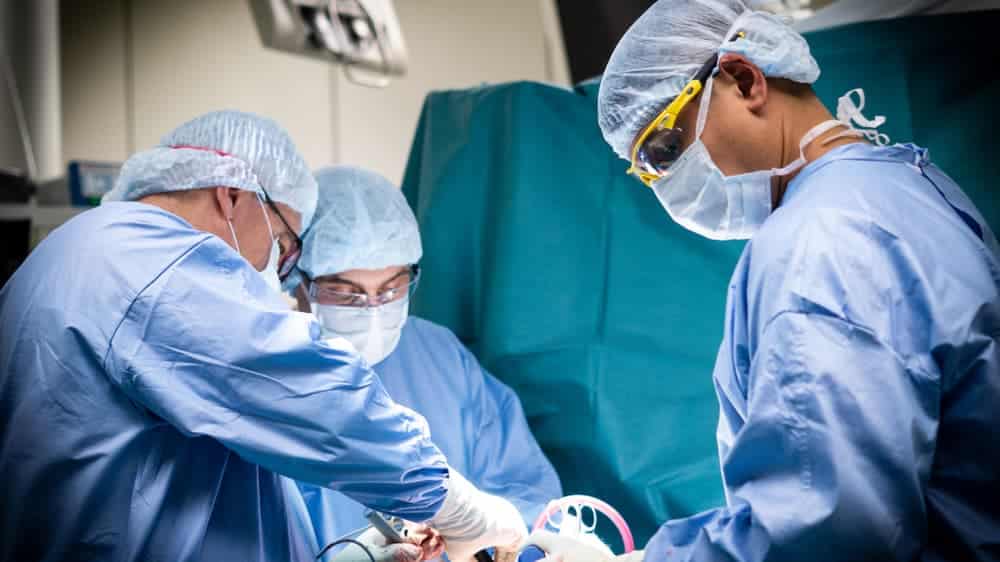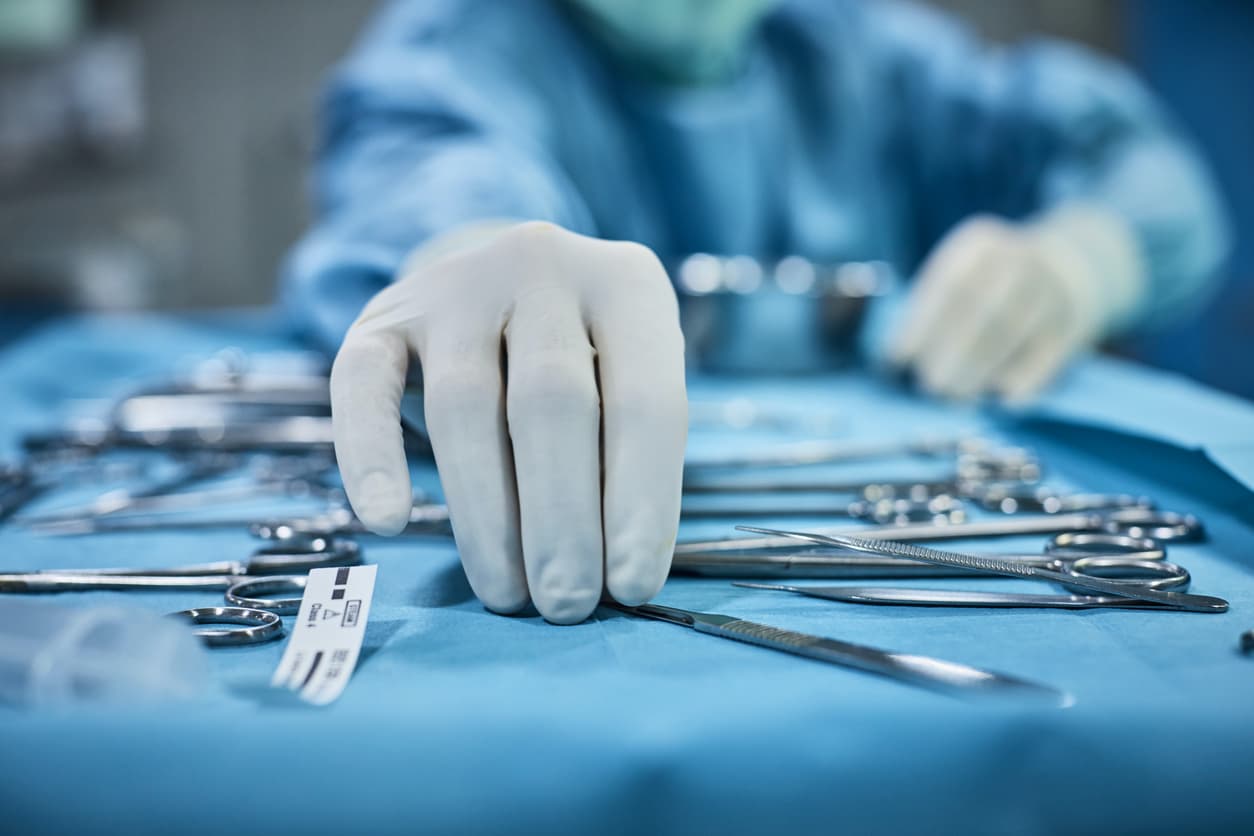The correct treatment of orthopedic problems is important both for our quality of life and for a quick return to everyday life, work and sports activities. Many times, a simple search on the internet is not enough to find the right or best orthopaedic surgeon, especially if we are dealing with the right choice of surgeon. Much of the information available out there is misleading when looking for "best orthopaedic surgeon". We often come across someone who calls himself a "top orthopedic surgeon" in his kind on his personal website, or who calls himself the first to bring a "revolutionary" technique to Greece. Therefore, special attention is needed to avoid mishaps.
Table of contents
Check the surgeon's CV
First of all, make sure that the doctor you have chosen is a member of a medical association (eg, the Medical Association of Athens) and that the practice operates legally. Beyond that, the résumé should contain detailed information about the doctor's career thus far, such as his undergraduate studies, possible graduate degrees, and what he did as a specialty or specialization.The résumé should be detailed and without long gaps between doctor placements.
Studies & Specialty
Undergraduate studies and master's degrees or a doctorate (PhD) are important for a doctor. Equally important is their writing work, as well as participation in lifelong learning. Does the doctor in this case have a writing activity to show? Have they published articles with his studies in international journals (peer-reviewed journals), which are available on Pubmed? Of course, the abundance of publications is not necessarily indicative of the doctor's abilities. It is not enough to say they are the "best orthopedist". But it is an indication that the particular scientist has done research and has dealt thoroughly with his subject.


Equally necessary in our time, is the specialization of the Orthopedic Surgeon. It stands to reason that surgeons who perform a high volume of specific procedures have more experience, better outcomes, and a lower complication rate than surgeons who perform fewer procedures, or who deal with multiple areas. Someone who performs 200-300 shoulder arthroscopies per year, obviously has more shoulder arthroscopies experience than someone who does 2 shoulder arthroscopies and 198 hip replacements per year. No one nowadays can claim to do everything equally well for some mysterious reason.
Experience overseas
Abroad, the Orthopedic Surgeon, after completing the specialization, specializes for at least 1-2 years in a center of reference in the subject of his interest (Fellowship). This detail is extremely important for the correct choice of surgeon. In Greece, unfortunately, the concept of further specialization after training is not widespread. In the majority of Western countries, such as North America (United States and Canada) or England, specialization is a given. In other words, the Surgeon specializes, e.g. in Shoulder & Elbow, Hand, Hip & Knee Surgery, Spine Surgery, etc. Then, they continue their career dedicated to their subject (e.g., as a Spine Surgeon).
Make sure your doctor is a “Fellowship-trained Orthopedic Surgeon” in the subject related to your problem, in one of the major centers abroad, since there is no corresponding center in Greece that offers this training.


Of course, many times, what is included in a resume may not be so clear, or may be misleading. It is, unfortunately, a common practice to state that the doctor has expertise abroad without further details or clarifications.There are not a few who make a short visit or attend a seminar abroad, and then write on their CV "Educated in the United States" or "Studied under Professor X or Y". The actual further training / specialization lasts at least 1 – 2 years in a salaried position.It requires certification in the country of practice with exams, a license to practice and registration with the local Medical Association.
It is important to know exactly what the doctor did abroad (were they a simple observer or did they make decisions and perform operations themselves). Attending seminars or conferences does not make one an expert surgeon in one subject. Also, experience abroad in Observership (observer=shadowing only), Traveling Fellowship (traveling fellow = visitor), or Postdoctoral research (postdoc = research) does not constitute surgical specialization. The Traveling Fellowship, in particular, is a few-day visit to the Practice of colleagues abroad, in order to get ideas from their own modus operandi. It usually involves older colleagues who wish to broaden their horizons. Unfortunately, it has been observed that younger colleagues participate in such programs and present them as expertise.
Finally, in cases where continuing education in America (USA) is mentioned, ask if the doctor is ECFMG-certified (Educational Commission for Foreign Medical Graduates), i.e. has passed the USMLE (United States Medical Licensing Examination), which are mandatory in order to to obtain a professional license and to "touch" a patient. With few exceptions, a doctor without a USMLE is not allowed to practice and operate in America.
Ask more about the surgeon's experience
Make sure your doctor has the required experience to treat your problem. You can ask directly how many similar cases he has dealt with in the past, or ask to be contacted by patients who are willing to talk about their experience with that particular doctor.
Seek recommendations from multiple sources
You can look for recommendations from many sources. Ask as many friends and family as you can. You will see that usually 1-2 names will come up more than once, giving more credibility to your research. Some good sources for recommendations are the following:
- Your GP, or General Practicioner
- Close friends
- Family members
- Social media (be careful, though)
- The doctor's website, especially if it contains testimonials
- Reviews from trusted sources, like Google
- A physiotherapist, nursing staff, or other healthcare workers. OR staff usually knows well who does what
- Ask your health insurance agent, as they are likely to have experience from other patients treated by the doctor in question
Discuss with the doctor
- Talk to your doctor thoroughly about your condition and your options. A good doctor will analyze all your possibilities and options.
- Ask the doctor about their experience, the number of surgeries they have performed, and their complication rate. There is no such thing as a zero complication rate!
- For all operations, no matter how simple, possible complications are described in the literature. Ask the doctor about the risks and benefits of the procedure and about the possible complications in general.
- Choosing the right surgeon is impossible if this person does not inspire us with confidence. Get to know them better.
Ask about the hospital & surgical team
- Prefer an organized and large hospital, where all medical specialties will be readily available.
- Choose a hospital with modern technological equipment and organized surgeries. Operations in organized hospital units have lower rates of post-operative complications, eg infections.
- Prefer organized medical teams, with experienced partners and specialized nursing staff.
Enquire about the costs of the procedure
- Ask if the surgery is covered by your private insurance and if the hospital is contracted.
- Ask if financial packages are provided for your insurance company, e.g. EOPYY, OGA, etc.
Ask for a second opinion
If you are not completely satisfied or confident with the choice of surgeon you have made, it is not a bad idea to seek other opinions. The best Orthopedic Surgeon is the one who not only combines the above characteristics, but also the one who will spend the necessary time in order for you to fully understand your problem, and for all your questions to be resolved.
FAQs - Frequently Asked Questions
How do I choose the best orthopaedic surgeon?
– Seek recommendations from multiple sources
– Read the surgeon's CV carefully
– The right surgeon should have specific experience on our specific problem
– Meet the surgeon & discuss your issue extensively
How do we look for recommendations?
– Relatives & friends
– Social media & internet
– Other healthcare workers
Find us
Book an appointment with us today

